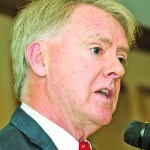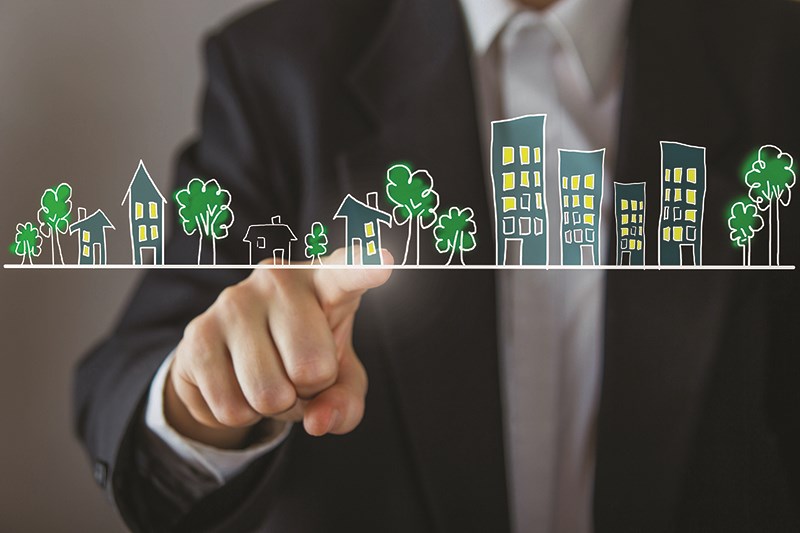Troy Shantz
On Jan 16, Sarnia postponed rezoning the former Kinsmen Centre on Lakeshore Road after residents strongly objected to selling the two-acre property for housing development.
Meanwhile, the cash-strapped city is beginning a process of reviewing all publicly owned assets — including parkland — that might be declared surplus and sold to the highest bidder.
In an informal poll, The Journal asking our elected leaders the following question:
“In general, do you support selling municipal land for development as a way to increase the tax base, yes or no?
MAYOR MIKE BRADLEY
MAYBE

“It depends on the circumstances, it depends on what the asset is.” He said he’s generally not in favour of selling off public assets, especially parkland that people use and value. But there might be cases that make sense, he added. “If there’s land that is absolutely not necessary for city purposes, and it’s surplus, there is value to doing that.”
COUN. DAVE BOUSHY
NO

He questioned the priorities of a council willing to sell the Kinsmen lands while spending $74,000 to “build a wall” at City Hall to separate politicians from administrative staff. “The public is fed-up with the delay of Centennial Park. The public is fed-up with us spending $11 million. Yet why would we sell something for a couple hundred thousand dollars? Where is the logic?”
COUN. ANDY BRUZIEWICZ
MAYBE

Though Sarnia is “not in the real estate business” it could do more to enhance existing assets and generate revenue, he said. “Return on investment is the key word on any of this consideration. And it’s not just in terms of monetary dividends; it’s also the use of it. Parkland is there for the community to use, and the value of it is quite obvious.”
COUN. ANNE MARIE GILLIS
MAYBE

A number of municipal assets including the “Consortium” lands in the area of Modeland and Michigan roads have already been sold, she noted. The revenue from future asset sales should be used to enhance existing parks and green spaces, she added. “What we’re doing is we’re reinvesting in our city.” When it comes to parks, though, Gillis is adamant they shouldn’t be sold.
COUN. MIKE KELCH
MAYBE

“Disposal of city assets is a thing that I think any city should, from time to time, evaluate. What are the assets? Does it still make sense to have all those things on the books?” he asked.
“I also think that when it comes to assets — where the public would have a significant interest — that their input needs to be sought before any decisions are made.”
COUN. BEV MacDOUGALL
MAYBE

It’s not a simple yes or no question, she said. “You can say yes, that you want to keep this all forever, but if you can’t sustain it then what are you gaining as a community?” she asked.
“That’s where I say (it’s) conditional to the undertaking of an analysis of the cost to make these assets sustainable, and the future community benefits.”
COUN. MATT MITRO
YES

“I would be a yes, because I want it looked at in its entirety.” He said city staff has been tasked with assembling a list of all assets that the city owns and maintains. From there he hopes it can be determined which assets might be sold to generate revenue, as well as avoid the future costs of owning and maintaining them, he said.
COUN. CINDY SCHOLTEN
YES

“It’s important to me to find new, creative ways to generate new revenue for the city, because obviously we’re growing at a very small pace.” If local developers can make better use of the land than the city it would benefit everyone, she said. “If we support our local developers, and we’re just pumping money back into our economy (we prevent) situations where we may need to raise taxes.”
COUN. BRIAN WHITE
MAYBE

“I prefer municipal control over services and amenities that the public has come to expect. That said, nothing is written in stone.” White said over time as the city’s evolves it may be worthwhile to acquire new assets, while at the same time selling those no longer needed to private interests that have a better use for them.
